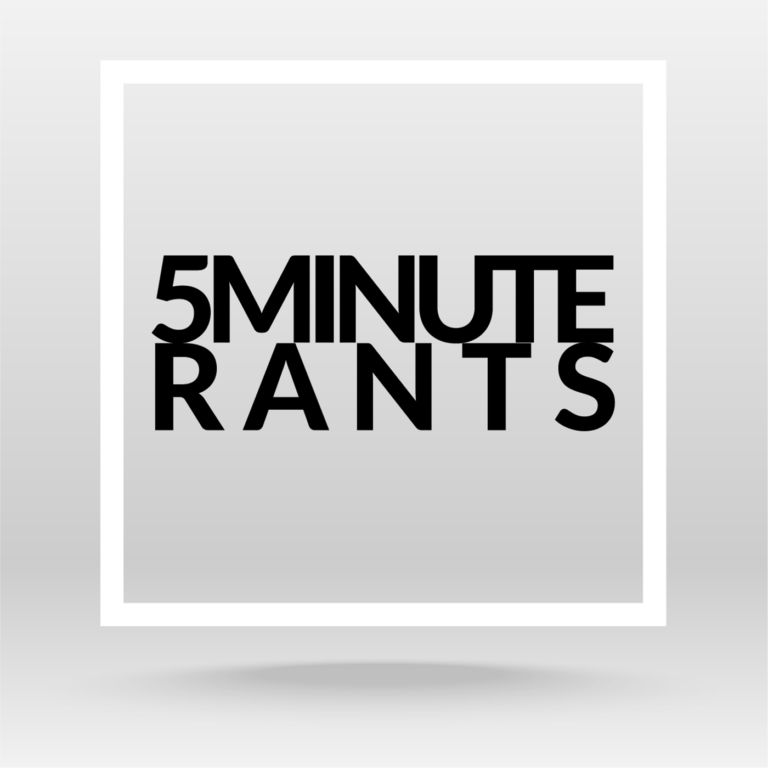Episode Transcript
Hey what’s up? What’s up? What’s up, everybody? Welcome back to THE a.m guys, welcome back to five minute rants. I’m your host, Michael Abernathy made Welcome back to the show predicated on the journey of life in business. Hey guys real quick. If you know somebody’s life who would change for the better by listening to this. Would you partner with me and spread the word and share it with them? If not, would you mind rating or leaving a review for the show? I really appreciate it.
Well, guys, today, I want to talk about our outlook on this world, and just how we view the world. And it’s very interesting, because half of our job as people is to observe, and then the other half of our job as people. And this is just a small aspect. But in navigating the world and society and things, half our job is just to observe like the nature waters, all we do is observe. And then the other half is to make judgment calls, aka decisions. And it’s very interesting, because the way we observe directly influences our decisions, and the better we are at getting to neutral. And the better we are at getting to neutral with our observations and not making a judgment call or decision in the moment about What we’re looking at, before it comes time to decide the better our decisions will actually be.
And Here’s, Here’s why I’m saying this because in society, every time we make a decision, we are weighed, risk and reward we’re weighing opportunity or risk, right? What do I have to lose from this? And What do I have to gain every time we’re making a judgment call. So if you in to give you a practical example of observation is going to the grocery store, looking at apples and observing all the apples and going, Oh, this one has a bad spot? Oh, this one doesn’t. Now the bad spot doesn’t mean that apples are evil, or apples are bad. And toxic. No, the bad spot just means like, Hey, I don’t want to eat that. Right. And then that’s our decision. I don’t want to eat we just observed this one has a bad spot this one doesn’t. And then we make a judgment call and a decision saying I don’t want to find the one that has a bad spot. I don’t want to eat bad spots, right? But if you’re making jams, or jellies, or if you’re doing other things, sometimes bad spots don’t matter. And so that decision doesn’t matter. Isn’t that interesting?
So the reason why I’m saying this is because when we go out through the world, we often skip the whole observation step, and we just go to opportunity to risk and then all we look at his risk, risk, risk risk or opportunity, opportunity opportunity, and we hurt ourselves. We make poor decisions, because we never took the time to actually step back and observe. Okay, and oftentimes, most of us are risk observant to where we just see the bad spots, always see is bad spots. And we don’t ever see how great the apple is. Or even despite the bad spot, the Apple still has seeds inside of it. And I could go plant my own apple tree and have apples in my backyard. Right? And technically, I could be wrong with that. Just because genetically modified stuff. But that’s the point. Like I’ve done that with watermelons. Oh, yeah, the watermelon. It’s a bad watermelon half. It’s bad. But you know What, I still got seeds, and I’ll go plant in my backyard and grow one that happened this summer, right. And so things like that, I totally because all I see is the bad I actually miss the other side, which is the opportunity.
And if the inverse happens, we only see opportunity, and we never actually measure the risk. And we never avoid our risk, because risk can be avoidable and mitigated. It really can. And then the opportunity is there and Simon Sinek. I heard him man like two, three years ago, he said something like people, just people, there are two types of people the way they see stuff. It’s like people only see people see What they want, see the thing that they want. And some people only see the block or the challenge that keeps them from getting What they want. And that’s really What we’re talking about is not taking both things into contexts and into observation. Because is like cool this is What I want.
And I need to see things and I will say this, I think a true optimist weighs both opportunity and risk both positive and negative outcomes. And a true strategist. And somebody who’s really, truly doing business looks at both because you cannot just be hyper hopeful and be like, Oh, this opportunity is amazing. And then not realize it’s about cost you everything and not walking into it. There’s a proverb that says no one goes to war without counting his troops. And so it’s really counting the cost before you get in there. And again, this goes back to knowing who you are. Which one are you do you only see the risk or do you only see the opportunity? and you need to see both And that you need to observe, do you skip the whole observation step? did you even know that you observe those things? and so it’s about knowing you.
Anyways guys, it’s that time so I’ll catch you later peace
